All set for the new semester
Today marks the start of the spring semester. A number of lecturers are particularly well prepared for it – such as the five assistants who attended the Learning to Teach course.
The exams are over, perhaps a few days of holiday here or there, and it’s time for things to get going again for the students – the start of the spring semester. And for the lecturers, it’s once again time for their schedule to be defined by lectures and exercises. This is a special moment for anyone standing at the front of a class for the first time.
Learning to teach
All of us have experience with teachers and lecturers, both the good and the slightly less accomplished. But what is it like to be the one standing at the front? How do you motivate the students? And what’s the best way to convey the course material? The Learning to Teach course offered by the Educational Development and Technology department (LET) provides answers to these questions. It’s specifically aimed at doctoral students who lead exercises, conduct excursions or provide support for internships and lectures.
Over three days, participants get an insight into teaching concepts and an overview of the most important literature. But even more important is the opportunity to gain experience themselves by running through teaching situations in small groups. “Trying things out is at the heart of what we do, and we try to keep the theory to a minimum,” explains Marion Lehner, who runs the course for the LET. “Once the participants have had initial experience of teaching, they can come up with concrete questions and really make the most of it.”
Exercise session in inorganic chemistry
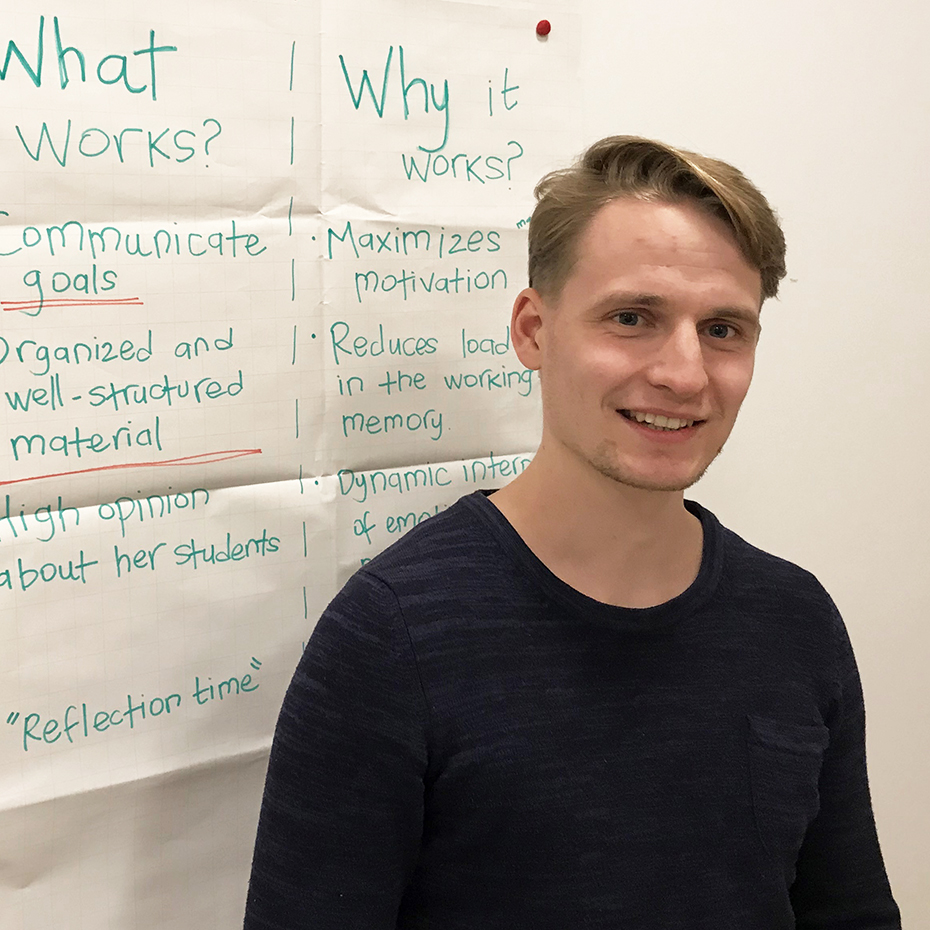
Thomas Vonderach is one such participant. Last year, he led an exercise session in inorganic chemistry with 20 students. He allows some self-critique in explaining his motivation for attending the course: “In the exercise session, I realised that while I was able to explain the chemistry to the students and correct the exercises, there was something missing; sometimes I found my class a bit boring.” In the next semester he will carry out experiments with a group of four students, and he wants to be properly prepared. “The course opened a door for me and gave me access to a lot of material. Now I know where I can get suggestions for the lesson,” he concludes.
Internship in food processing technology
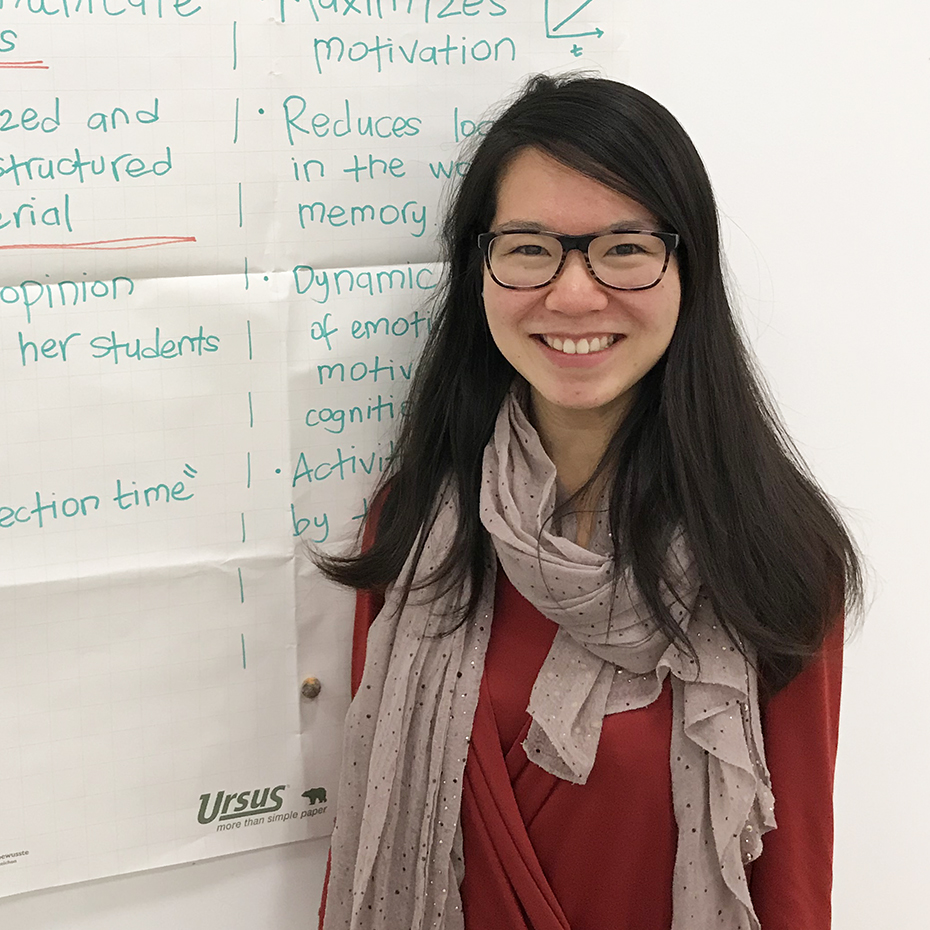
Yi Chen will be standing in front of a group of students for the first time. She is beginning her teaching experience with an internship for five or six students in food processing technology. “I didn't have specific expectations for the course; what I particularly wanted was to learn a few basics for interactive lessons,” says Chen. During her studies in China she mostly attended traditional lectures, and she has no personal experience with project work. She was particularly impressed by the concept of the portal: “I was sceptical at first, but then I quickly realised how important the first lesson is for what is to follow. That’s when you create the atmosphere for the whole course.”
Course on research expeditions
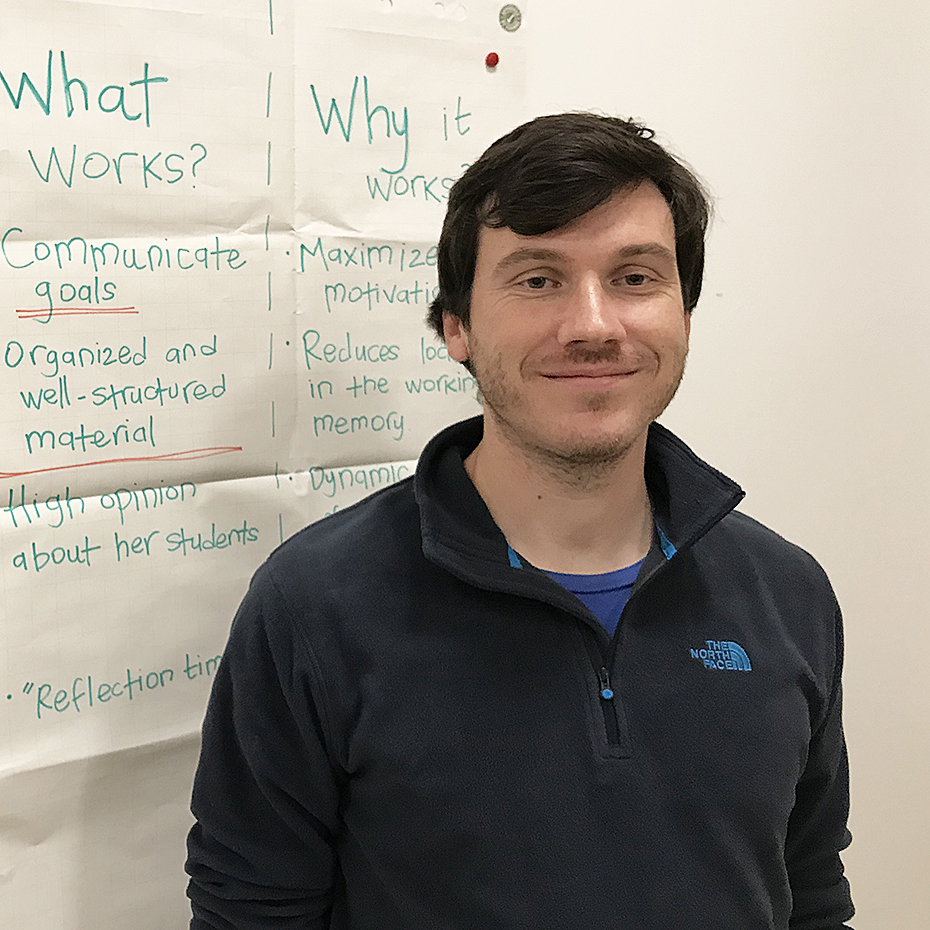
For Andreas Greiner, too, realising how important the introduction is to a course was “a big a-ha moment”. He provides an example: “If every student says something in the first session, you can stop them from dividing themselves into talkers and introverts from the start.” In the new semester, Greiner is giving a course on research expeditions from 1800 to the present day. With no prior teaching experience, he is expecting 20 Master’s students from various departments. “Above all, I’m concerned with the question of how you communicate something to a physics student while also retaining the interest of the future historian.” He found the group exercises in the course particularly helpful. “If something doesn’t work with doctoral students, then it probably wouldn't work in a lesson with other students either,” he says.
Exercises for first-year students
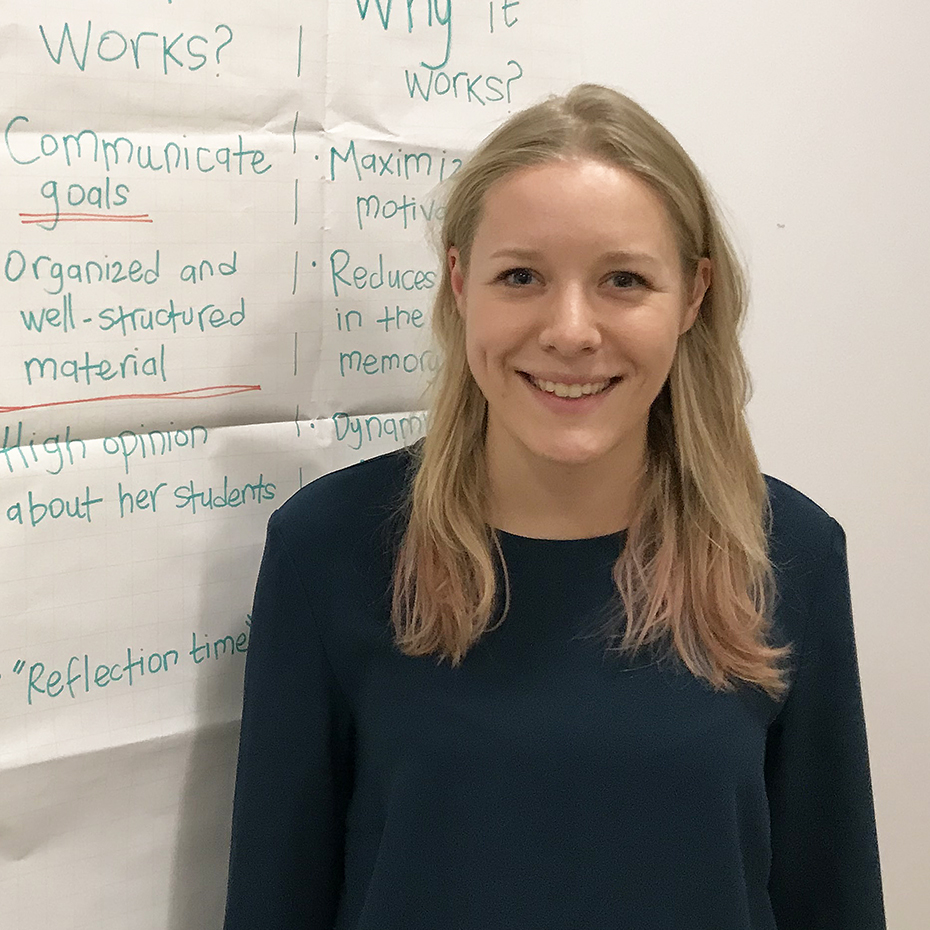
Since last semester, Janne Soetbeer has offered exercise sessions for 20 to 30 first-semester students. “I realised that I have a huge influence on what the students understand,” she says, summarising her experiences to date. “It is worth investing the three days for the course, because afterwards you can give better lessons.” She also particularly valued the exchange with other participants, for example when it came to applying general teaching concepts to natural sciences: “For a Bachelor’s session, we first have to teach students the vocabulary for discussion before we can discuss the content with them.” This is different to a history lecture, for example.
Exercises for the lecture
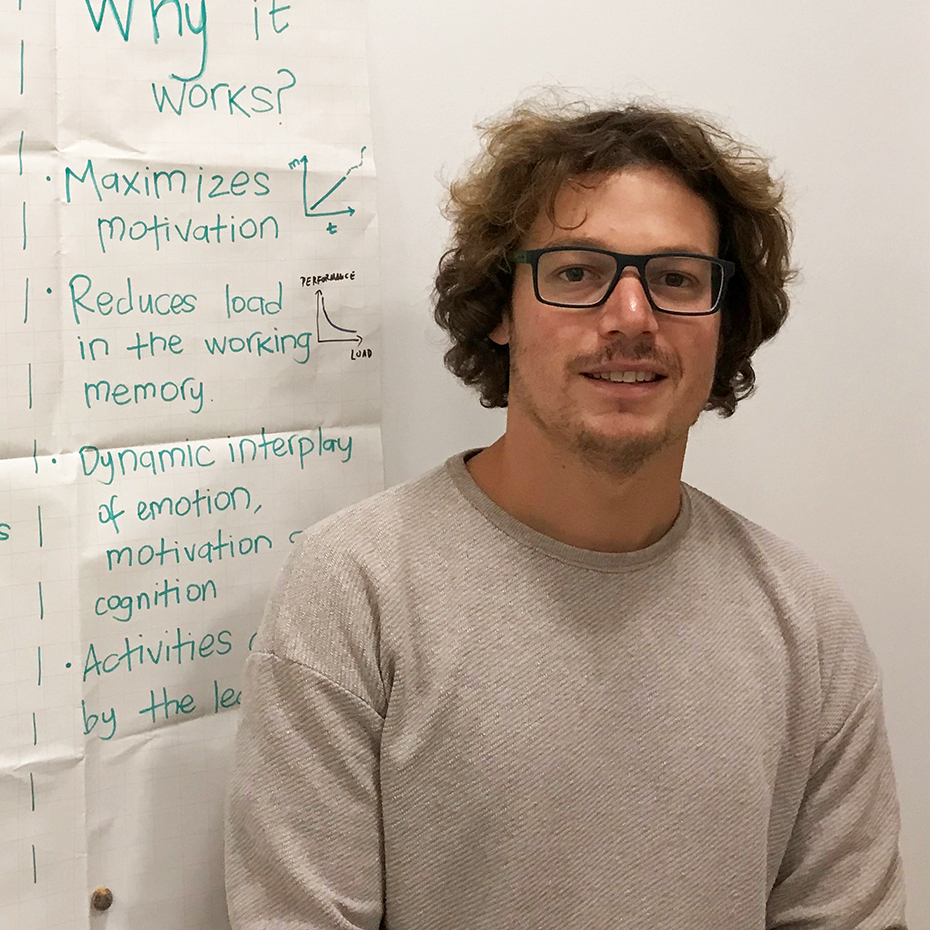
“Certain things that I thought would be difficult before the course did actually turn out to be difficult,” says Manuel Zimmermann, who will be offering exercises connected to a lecture on railway infrastructure to around 200 students. As he has discovered, communicating a concept properly isn’t that easy. He also found the group exercises helpful, particularly the immediate feedback from colleagues: “‘I rarely get that kind of feedback in the lesson, because the students don’t dare tell me if they don’t understand my explanations,” he says. For Zimmermann, giving feedback also contributed a lot to the learning process: “We were forced to consider why something was good, and in so doing we recognised certain methodological principles from the theory section.”
Demanding but rewarding
All the participants agree: the course was demanding, but well worth it. They are motivated to get to grips with their teaching tasks with the knowledge that they can make mistakes to improve their teaching. “We will soon be doing on a large scale what we have done in microcosm here,” says Janne Soetbeer, looking back on the three days.
Courses for teachers
The Learning to Teach course is aimed at assistants at ETH Zurich and is carried out monthly with 12 participants. The Educational Development and Technology department also offers regular courses for professors, senior assistants and teaching assistants.
You can find the whole teaching programme here.
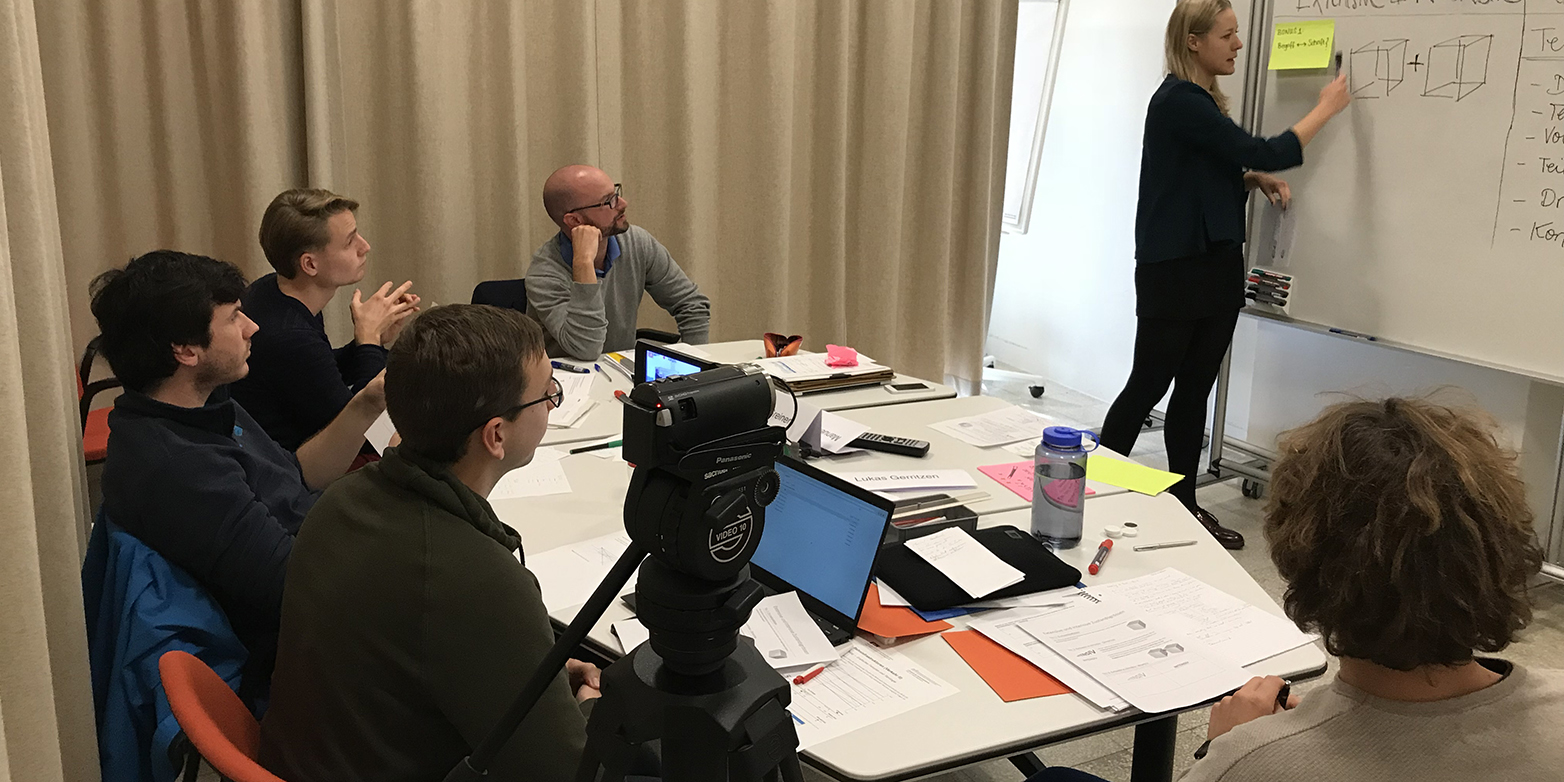
Comments
No comments yet